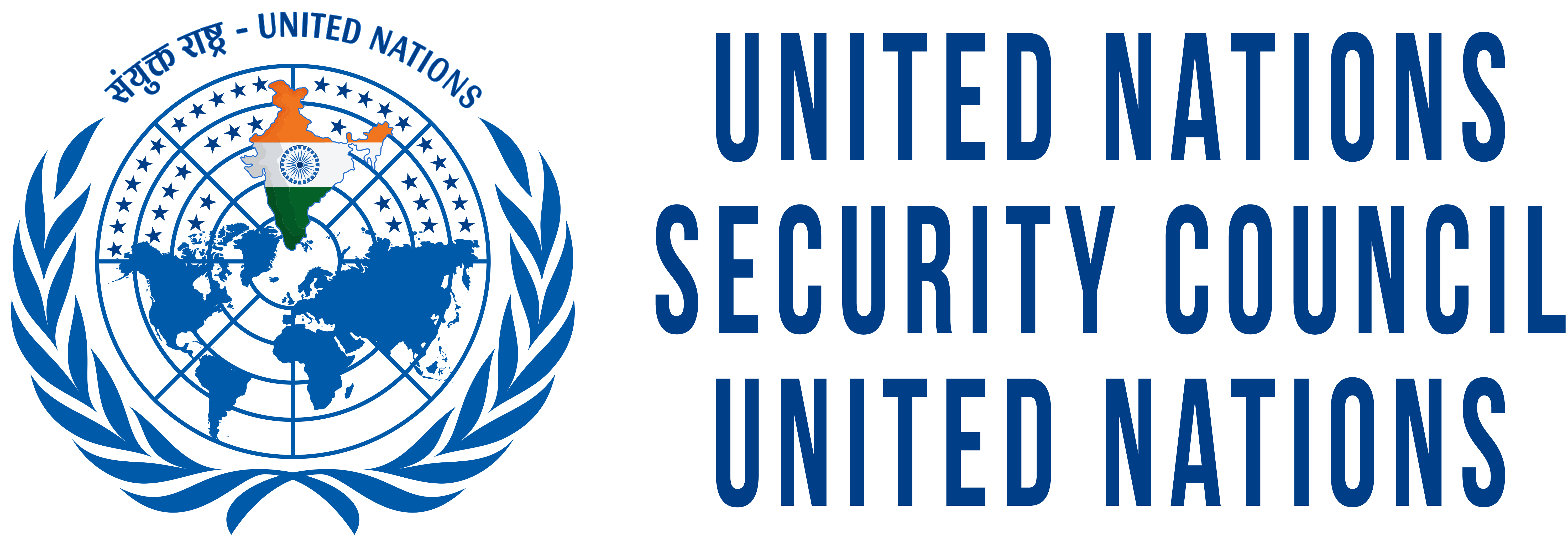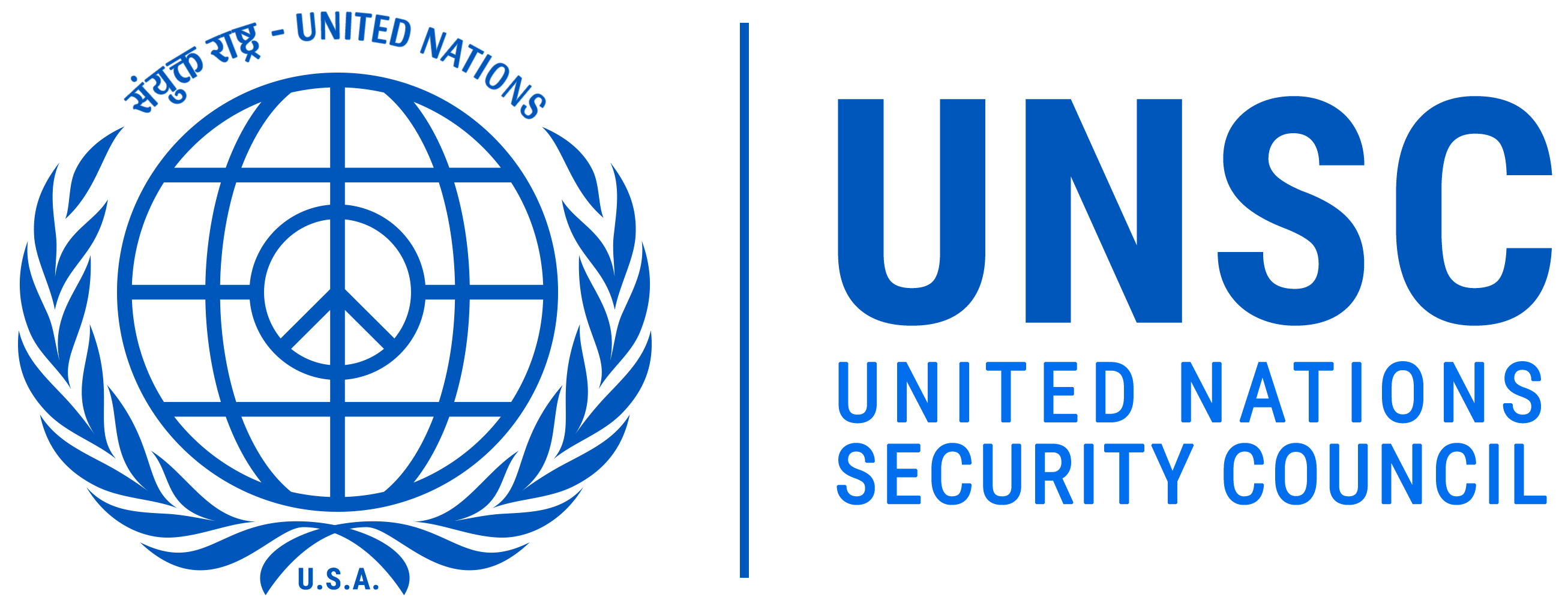Peace and Security
By eliminating the outdated concept of war, significant resources could be redirected towards more constructive purposes. This redirection would enable a focus on advancing economic development, improving healthcare, enhancing education & promoting environmental sustainability. Such a shift not only promises greater global prosperity but also fosters a fairer and more equitable world. Achieving these objectives necessitates collaborative international efforts & a steadfast commitment to peace. Through coordinated action & the establishment of a robust International Peace Force with clear legal backing, we can move closer to resolving conflicts through dialogue & diplomacy rather than resorting to violence. The United Nations stands poised to lead this transformative journey towards sustained global peace & security.
India In The UNSC
Advocating for India's Permanent Seat in the United Nations Security Council
The United Nations is committed to promoting global peace, security, respect, equality, dignity, economic development, prosperity, and a sustainable environment. In alignment with these values, the United Nations is advocating for India's permanent seat in the United Nations Security Council (UNSC) through its subsidiary organization, India UNSC. Learn more about this initiative and support our mission by visiting www.india.unsc.uno.
Why India Deserves a Permanent Seat in the UNSC
1. Democratic Credentials
- World’s Largest Democracy: India, with over 1.4 billion people, is the largest democracy in the world, upholding values of freedom, justice, and human rights.
- Representative Voice: India’s democratic governance represents a diverse and multicultural society, making it an essential voice for emerging democracies and developing nations.
2. Economic Growth and Development
- Global Economic Powerhouse: As one of the fastest-growing economies, India plays a crucial role in global economic stability and development.
- Innovative Leadership: India’s advancements in technology, renewable energy, and space exploration demonstrate its ability to contribute to global progress and innovation.
3. Peacekeeping Contributions
- Significant Contributor: India has a long history of contributing to UN peacekeeping missions, with over 200,000 Indian troops serving in 49 missions across four continents.
- Commitment to Peace: India’s dedication to maintaining international peace and security is evident through its extensive participation in peacekeeping operations.
4. Diverse and Multicultural Society
- Unity in Diversity: India’s multicultural and multi-ethnic society embodies the principles of unity in diversity, offering valuable insights into conflict resolution and harmony.
- Cultural Diplomacy: India’s rich cultural heritage and commitment to global dialogue promote understanding and cooperation among nations.
5. Global Leadership and Diplomacy
- Active Diplomatic Role: India has consistently played a constructive role in international diplomacy, supporting initiatives like the International Solar Alliance and the Coalition for Disaster Resilient Infrastructure.
- Champion of Multilateralism: India’s leadership in various international forums underscores its commitment to multilateralism and cooperative global governance.
India’s bid for a permanent seat in the United Nations Security Council is not just about enhancing its own stature, but about bringing a balanced, representative, and committed voice to the table. As a country dedicated to promoting peace, security, respect, equality, dignity, economic development, and prosperity, India’s inclusion in the UNSC would contribute to a more equitable and effective international order.
Join us in advocating for India’s rightful place in the UNSC. Together, we can ensure a future where peace and security are sustained through the inclusive and representative decision-making processes of the United Nations.
Visit us at www.india.unsc.uno to learn more and support our mission.
UNSC
Building a Secure and Peaceful Future for All Nations
The United Nations is dedicated to promoting peace, security, respect, equality, dignity, economic development, prosperity, and a sustainable environment. To achieve these goals, the United Nations maintains peace and security through its subsidiary organization, the United Nations Security Council (UNSC). Learn more about our efforts and initiatives by visiting www.unsc.uno.
Key Actions:
- Conflict Prevention and Mediation
- Peacekeeping and Peace-building
- Disarmament and Non-Proliferation
- Combating Terrorism
- Promoting Human Rights and Justice
- Enhancing Cybersecurity
- Supporting Humanitarian Efforts
Historical Perspective
The quest for global peace and security has evolved significantly over the centuries:
- League of Nations (1919-1946): Established after World War I to prevent future conflicts, the League of Nations failed to prevent World War II due to lack of enforcement power and global participation.
- United Nations (1945-present): Formed after World War II to replace the League of Nations, the UN has had notable successes, such as ending apartheid in South Africa and facilitating decolonization. However, it has also faced challenges, including the Rwandan Genocide and the ongoing conflict in Syria.
Economic Impact
- Afghanistan: Post-2001 international intervention led to a significant increase in GDP and improved infrastructure, though challenges remain.
- South Korea: Post-Korean War, South Korea’s economic growth and development transformed it into a high-income economy.
- Germany: Post-World War II reconstruction under the Marshall Plan boosted Germany’s economy, leading to rapid industrial growth.
- Vietnam: Economic reforms and integration into the global economy have transformed Vietnam into one of the fastest-growing economies in Asia.
- Rwanda: Post-genocide, Rwanda’s focus on reconciliation and economic reforms resulted in significant economic growth and development.
- Sierra Leone: Post-civil war, international support for reconstruction has helped stabilize the economy and improve living standards.
- Liberia: Post-civil war, international aid and investment have been crucial in rebuilding the economy and infrastructure.
- Colombia: The peace agreement with FARC has opened up new economic opportunities and increased foreign investment.
- Bosnia and Herzegovina: Post-conflict reconstruction efforts have led to economic growth and improved infrastructure, though challenges persist.
- Mozambique: Post-civil war, peace and economic reforms have led to significant economic growth, despite ongoing challenges.


